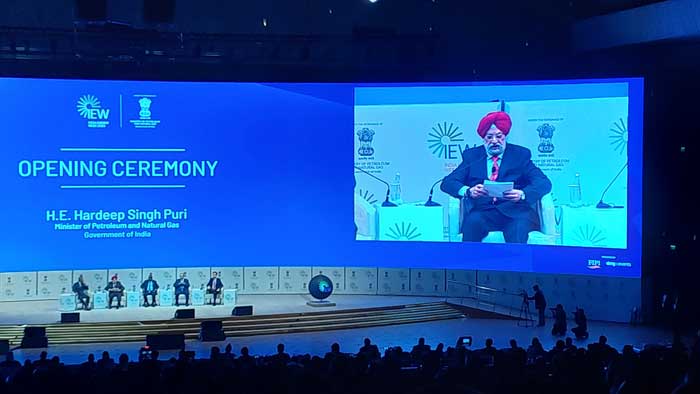Union Minister Hardeep Singh Puri has said the emerging global energy order must be determined based on artificial intelligence and clean cooking, balancing immediate challenges with long-term vision, and resilient supply chains.
Giving voice to an important concern of the 77 developing nations of the Global South, Hardeep Singh Puri, India’s Minister for Petroleum & Natural Gas, has said even as the world transitions to clean energy sources, ensuring energy justice must remain a priority with stakeholders.
“Energy justice must remain at the core of the imminent transformation. A fragmented transition risks deepening inequality, leaving billions without reliable energy while wealthier nations surge ahead. If the transition is not just, it will not succeed because the political economy will not allow it,” Puri declared during the inauguration of India Energy Week (IEW) 2025 in New Delhi on Tuesday.
The minister added that the new energy order must be determined based on three factors: artificial intelligence, clean cooking, and balancing immediate challenges with long-term vision, and resilient supply chains for an orderly transition.
Explaining the first point, Puri said with data centre demand rising by up to 20 per cent, AI was one of the largest energy consumers today. India’s AI-driven digital economy projected to reach $400 billion by 2030 presented both an opportunity and a challenge.
“The real question is not how we will meet this surge in demand, but how we will do so without destabilising grids or derailing climate commitments.”
This, therefore, had to be addressed through strategic investment across hydrocarbons and renewables. A smart reallocation of capital in areas such as wind and solar where intermittency is manageable, biofuels where liquid fuel demand persists, and gas where firm power is essential would ensure both affordability and decarbonisation.
The India opportunity
Inviting global companies to invest in India’s ambitious energy transition he said the country offered 7.6 billion tonnes of discovered upstream resources, 500 million tonnes of biofuel feedstock, and rising energy demand.
“At the same time, it is scaling renewables, targeting 5 million metric tonnes of hydrogen by 2030, $96 billion in hydrogen investments, and a gas share increase from 6 per cent to 15 per cent, alongside $30 billion in refining and petrochemical expansion.”
Referring to critical minerals like lithium and nickel and building block materials like semiconductors, he said their growing role in energy transition must not end up creating winners and losers among countries.
“Without intervention, the growing gap in energy technology access could leave developing economies locked out of the transition. Governments and industries must act decisively to prevent disorderly shifts,” cautioned Puri.
Now in its third year, IEW has established itself as the second-largest energy event globally. Other than a platform to discuss decarbonisation strategies, it also seeks to spur collaborations in green hydrogen technologies, solar advancements, and cutting-edge exploration methods like AI and digitalisation.
Manish Pant


